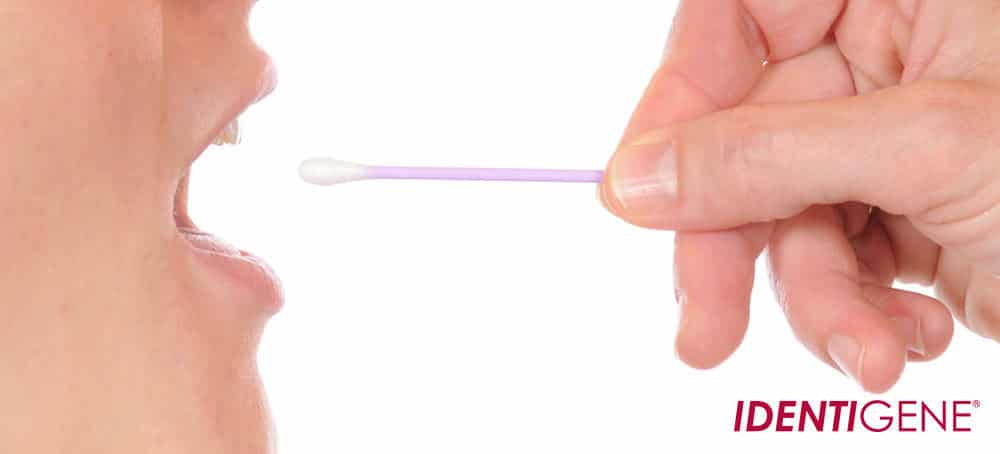Paternity testing can answer a lot of questions, but some of these questions are trickier to answer than others. Good examples are when DNA paternity testing involves twins, either as children or alleged parents. Identical twin fathers are by far the most difficult to detect due to their indistinguishable DNA samples; rarer cases, such as twin children with two different fathers, are much easier to solve despite their infrequent occurrence.
While reaching conclusive DNA test results when alleged fathers are identical twins is not impossible, the process is outrageously expensive and therefore cost-prohibitive for most folks. As medical advances in the field of genetic testing become more affordable and commonplace, it may become easier to answer these questions of paternity in the future. For now, those answers are fleeting.
Paternity test results with identical twins
There have been many cases in which the alleged fathers are identical twins. The DNA test results are almost always inconclusive since identical twins share almost identical sets of DNA.
Until recently, the consensus has been that identical twins share completely identical DNA, but recent studies show that isn’t necessarily true. Rather than looking at the standard 15 markers analyzed in today’s paternity tests, highly-advanced and impossibly-expensive DNA tests that analyze the entire genome sequence – as many as six billion markers – are able to identify at least a single mutation in one of the identical twins’ genetics that has been passed on to the child (Sapiro). However, DNA tests that are presently accessible to the public do not analyze enough markers to distinguish the two, presenting a serious problem in court cases to establish paternity for child support.
Hopefully, next-generation technology will be able to identify the differences between identical DNA in a way that’s affordable as well as accessible to the general public. Until then, paternity involving identical twins remains unsolvable.
Fraternal twins and different DNA test results
Unlike identical twins, it is possible for fraternal twins to have different fathers, though these cases are extremely rare.
This occurs through a process known as superfecundation, which is the fertilization of two or more eggs from separate acts of intercourse. Studies show that this is possible because the window of time in which a woman is fertile can span from five to seven days (Weller). While an egg only remains fertile for 12-48 hours, sperm can live in a woman’s body for four or five days, thereby expanding the possible time of fertilization (Wikipedia).
This process can only occur with fraternal twins. It is not possible for identical twins to have two different fathers since their identical genetics can only occur when one sperm fertilizes one egg and the resulting cell divides (Worland).
Superfecundation is assumed to happen more often with just one father; however, tests are only able to detect its occurrence when there are two different fathers. The latter group makes up for approximately 2% of paternity suits involving fraternal twins in the United States, generally drawing a lot of attention from the media due to its rarity (Worland).
Even though testing for superfecundation is rarer than administering paternity tests to identical twin fathers, it is a far easier mystery to solve. Provided the fathers in question are not identical twins themselves, modern-day DNA paternity tests can conclusively determine whether fraternal twins have different fathers.
Answering questions of paternity in cases involving fraternal twins
Court cases involving fraternal twin children with different fathers can be resolved with a legal paternity test without complications in the DNA testing process. However, you can always make sure ahead of time with an at-home paternity test from HomeDNA Paternity.
Do you have fraternal twins and suspect there may be two different fathers? Get the answers you need today with our paternity test kit. Click here to learn how it works.
How much does it cost to do a paternity test with twins?
Although you can use one HomeDNA Paternity kit to test twin children, you’re still asking two separate questions:- Is the man tested the biological father of Twin A, and
- Is the man tested the biological father of Twin B?
Follow us on Facebook and Twitter! If you have questions about paternity tests or other DNA testing services, please contact our Client Support Center at 888-404-4363, Mon-Fri from 8:30 AM to 5:30 PM Eastern Time. Our friendly, expert representatives are ready and happy to help. Get answers anytime by visiting our Help Center.
Sources Sapiro, Anne. “Understanding Genetics.” Understanding Genetics. Stanford University, 5 Aug. 2014. Web. 21 July 2015.
“Superfecundation.” Wikipedia. Wikimedia Foundation, n.d. Web. 21 July 2015.
Weller, Chris. “NJ Twins Have Two Different Fathers, Court Rules.” Medical Daily. Medical Daily, 08 May 2015. Web. 21 July 2015.
Worland, Justin. “The Science of How Women Can Have Twins With 2 Different Fathers.” Time. Time, 8 May 2015. Web. 21 July 2015.








